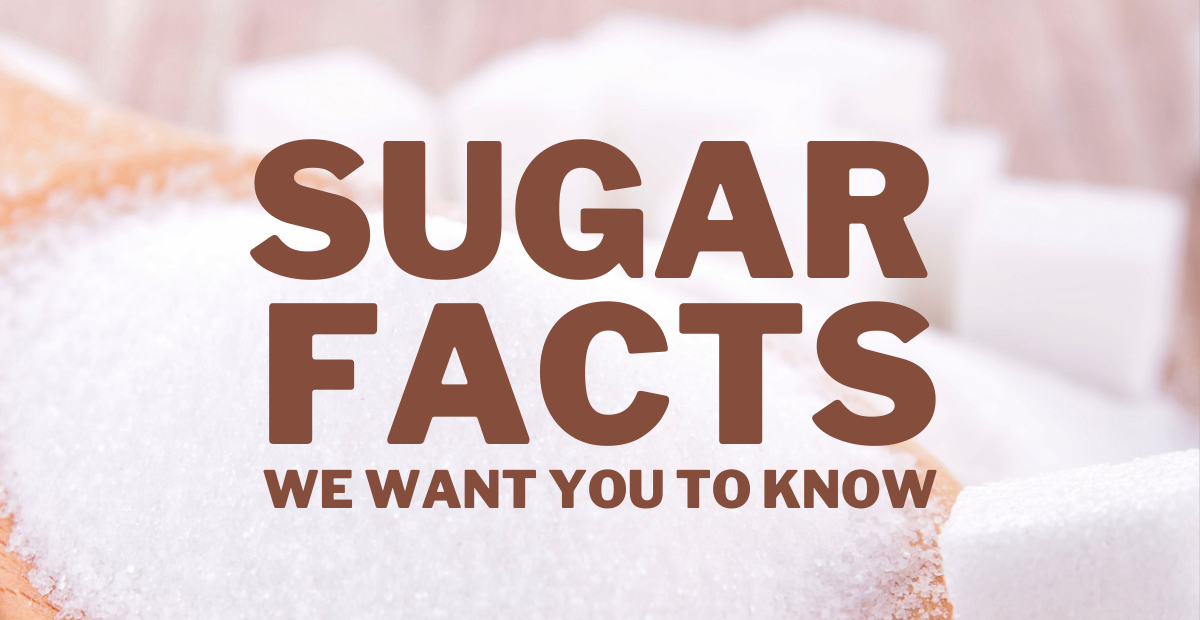KOJA Blog
1. You can't completely remove sugar from your diet.
Despite what the media might tell you, you cannot remove sugar from your diet all together. You can however reduce your intake of added sugars and hidden sugars to improve your energy levels and overall health status, but cutting sugar out in all its forms is an unhealthy goal, let alone near impossible.
Why?
Every time we eat a whole food that contains carbohydrates, the carbohydrate component is broken down in the body into sugar molecules (also known as glucose). This fuel source is used immediately in our bodies for energy - to power our minds, help with concentration, move our bodies, and give us the energy to do everything we do in a day.
Carbohydrate foods include fruit, vegetables, dairy products, lentils, legumes and whole-grains and make up a significant portion of our diet. These foods are highly nutritious and should be consumed everyday.
Added sugars found in highly processed foods are the types of sugars we should be aiming to limit. You don't need to cut these foods out all together (that wouldn't be much fun), but do try your best to moderate your intake where you can.
As you can see, cutting out sugar all together would involve removing some very important foods and food groups. Our advice - eat more whole foods and limit highly processed foods as best as you can.
If you'd like to know more about the digestion of carbohydrates, you can read it over on our blog here
2. You can naturally reduce your intake of added sugars by eating more whole foods.
If one of your nutrition goals is to reduce your intake of added/hidden sugars, we suggest focusing on including more whole foods in your diet. Whole foods are foods in their most natural form and are free from excessive processing and the use of additives, preservatives and artificial ingredients. It's what we're passionate about here at KOJA - creating healthy snacks from whole foods without any BS.
Prioritising the consumption of high quality nutritious foods in your diet will assist in 'crowding out' the less nutritious, more processed foods and will assist in reducing your over all sugar intake.
3. Sugar is absorbed differently in the presence of other nutrients.
Sugar is actually absorbed differently in the body when it is present in a whole food. For example, the natural sugar fructose which is found in fruit is metabolised much differently to that of table sugar present in a cup of tea.
Sugars found in whole foods (fructose in fruit, lactose in dairy, or sugars that are added into products that contain whole-foods like the coconut sugar in our KOJA Peanut Butter Bars that contain nuts and other nutritious ingredients) are absorbed into the blood stream at a much slower rate in comparison to sugars in highly processed foods and beverages. When sugar is present among a balance of healthy fats and protein, fibre and other important nutrients such as vitamins and minerals it is metabolised at a much slower rate. The slower the sugar is absorbed, the less likely you are to experience a rapid rise and drop in your blood sugar levels, which can leave you feeling hungry, lethargic, agitated and fatigued. No thanks!
4. Don't forget about the sugar guidelines.
All of this sugar talk probably has you thinking about how much sugar it is okay to consume every single day.
Well, according to the World Health Organisation (WHO), the recommendations for Australian Adults is to consume no more than 50 grams (12 teaspoons) of 'free sugar' per day to prevent poor health outcomes.
Free sugars include:
- Glucose
- Sucrose/Table Sugar
- Honey/Syrups
- Sugars in Fruit Juices & Fruit Juice Concentrate
Found in foods such as: Soft drinks, Lollies, Baked Goods, Chocolate bars, Biscuits, Cakes, Cereals, Unhealthy snack bars, Jams and preserves, sauces.
Don't forget, it is still recommended to consume 2 serves of fruit every day for gut-loving fibre, disease-fighting antioxidants and immune supporting vitamins and minerals.
Take home messages:
- It's unhealthy to try to remove sugar in its entirety from your diet
- Focus on consuming more whole foods in your diet and limiting your intake of processed foods
- Sugar present in whole foods is metabolised differently in comparison to free sugars
- Be mindful of the sugar intake guidelines for optimal health outcomes
Written by Millie Padula, Accredited Practising Dietitian and Nutritionist
Gut Health, Health, Healthy, Healthy Body, Healthy mind, Nutrition, Snacks Next Post Previous Post
